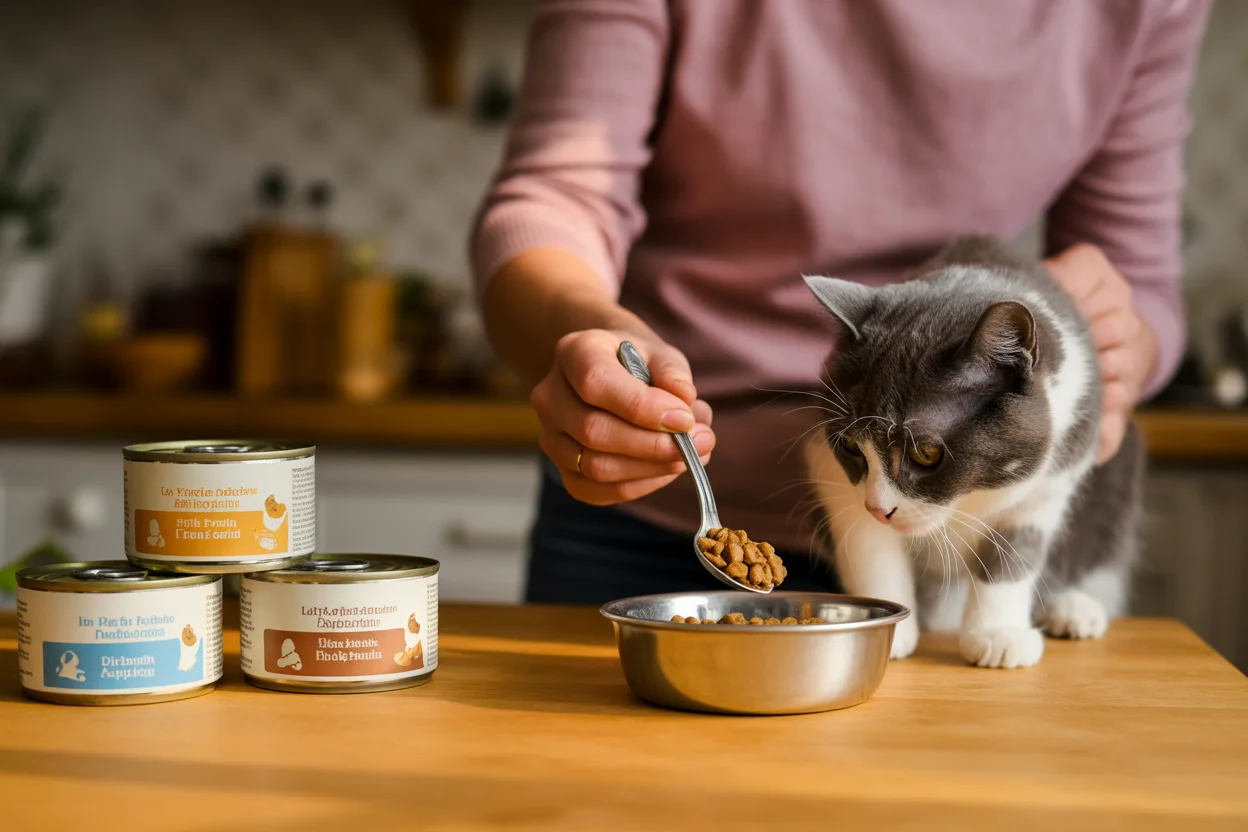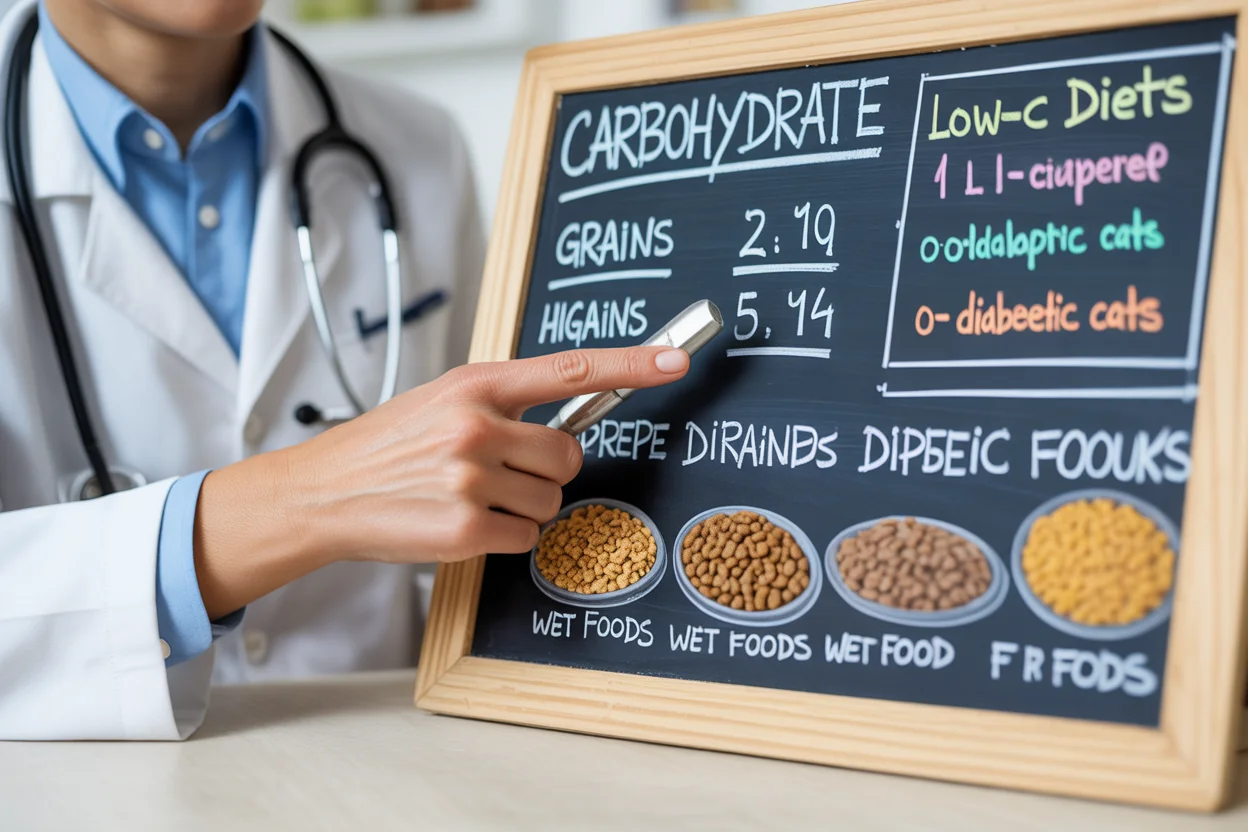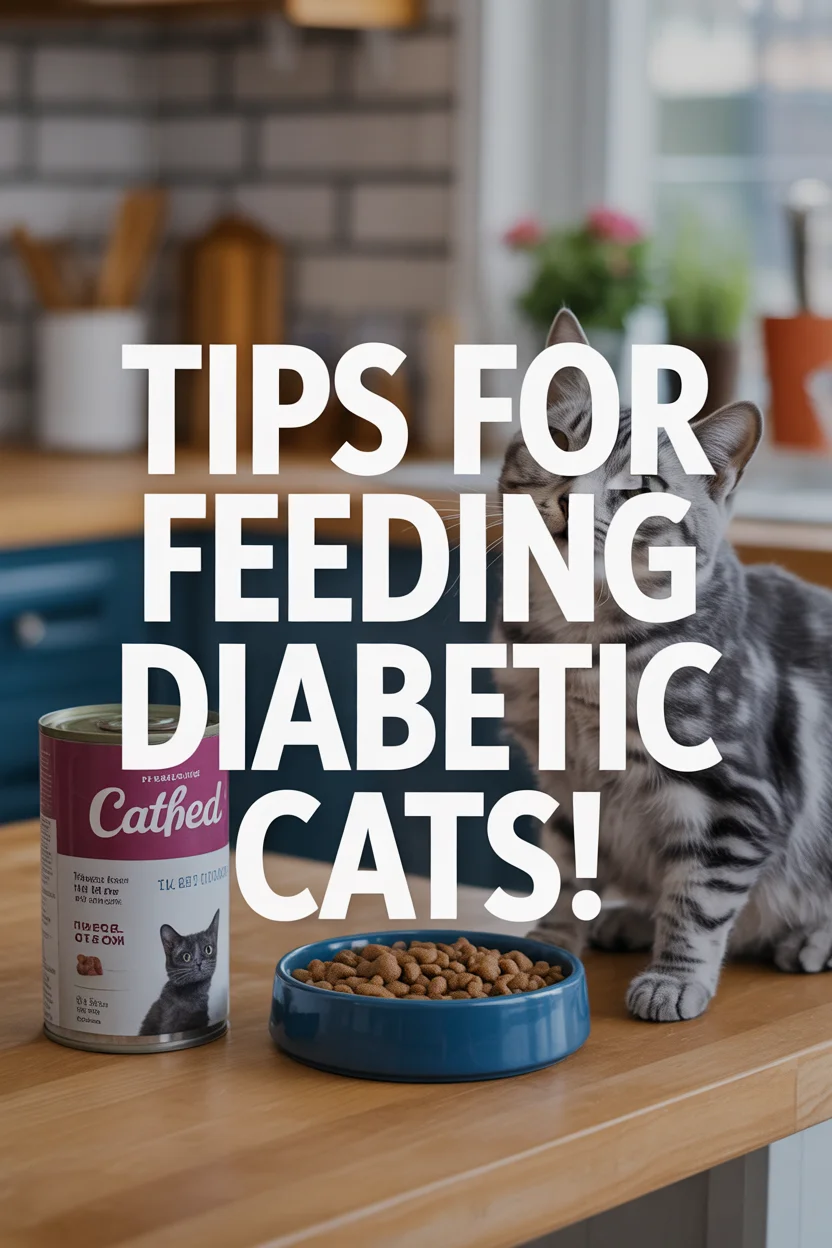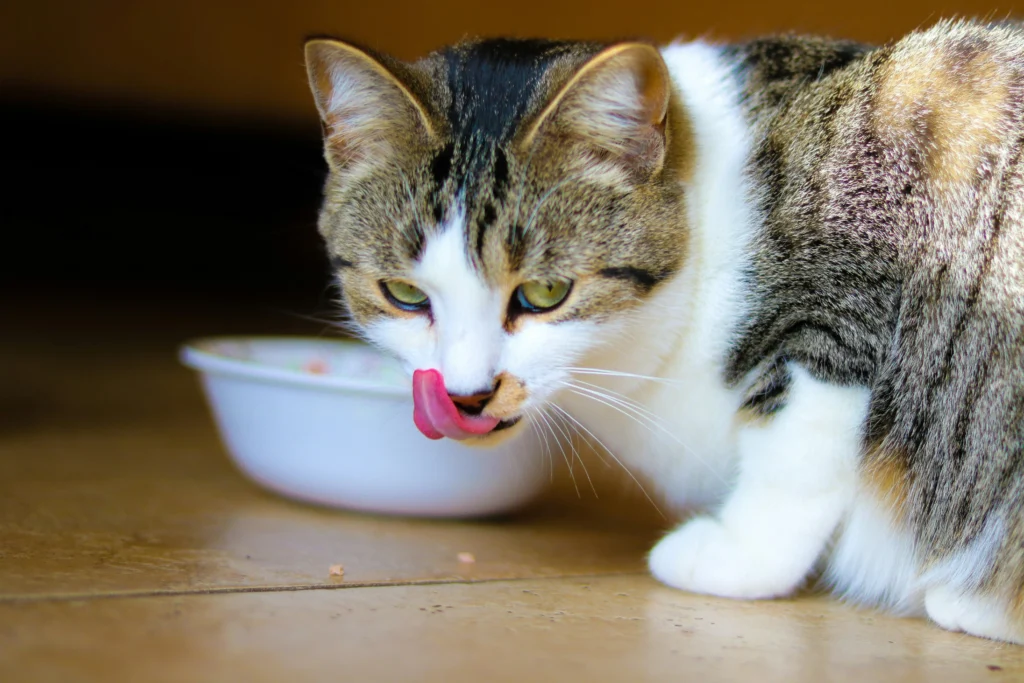- Can Diabetic Cats Eat Wet Food? (Short Answer + Best Practices)
- Why Wet Food Is Often Better for Diabetic Cats
- How to Read Labels (and Decode Carbs)
- Picking the Right Wet Food
- Wet vs. Dry for Diabetic Cats
- Your Cat Deserves Their Five-Star Food (And You Deserve Less Stress)
You know the struggle—can diabetic cats eat wet food, or is it just another thing to worry about? I used to stand in the pet food aisle, feeling lost and, honestly, kind of annoyed at cans promising the world. Well, if you’re sitting there looking at your fluffy insulin-dependent buddy and wondering what’s best, you’re definitely not alone. Wet food can actually be a lifesaver for diabetic kitties (yep, really). And, hey, if you want more on the specifics of feeding diabetic cats or unraveling cat nutrition, stick around because I’ll get into all that.

Can Diabetic Cats Eat Wet Food? (Short Answer + Best Practices)
Let’s cut to the chase—yes, diabetic cats absolutely can eat wet food. Actually, most vets prefer it for diabetic cats because it’s usually lower in carbs and packs a lot more moisture compared to dry stuff.
- Choose foods with lots of protein, not carbs.
- Watch for higher moisture, keeps their kidneys happy too.
- Keep meal timing and insulin close (I can’t tell you how many times I almost mixed that up. Whoops).
Work with your vet on the best routine—my guy calls himself my cat’s “food coach.” Your doc probably will too.
“Switching to wet food changed my cat’s energy overnight. His numbers finally stopped yo-yoing, and even the vet was cheering!” – Jamie, real cat mom

Why Wet Food Is Often Better for Diabetic Cats
Alright, here’s why wet food gets all the five-star reviews (from cat parents, anyway):
Carbohydrate Control Matters
Carbs…ugh. Too many of ’em make blood sugar spike. If you’re hunting for wet food, shoot for a low-carb profile—think under 10%, dry-matter basis.
- High-carb = trouble with blood glucose, trust me.
- Compare labels. If carbs aren’t obvious, I show you the trick next.
Protein and Moisture Benefits
More protein keeps your cat satisfied, helps those skinny diabetic kitties stay strong, and builds lean muscle.
- The extra moisture in wet food? Big plus for urinary tract health.
- My cat started using her litter box less, but in a good way!
Consistency Is Key
Don’t get fancy—pick a food and stick with it if your cat tolerates it. Switching up recipes all the time can throw their sugar outta whack.
How to Read Labels (and Decode Carbs)
Let’s be honest, cat food labels are about as clear as muddy water. Here’s how to decode ’em fast:
Guaranteed Analysis vs. Dry-Matter Basis
That “guaranteed analysis” panel? Looks official, usually confusing.
- Do quick math: subtract the listed moisture FROM 100, then recalculate protein/carbs to see the real values, dry-matter style.
- Trust your gut—if the carb number looks high, maybe skip it.
Ingredients to Prefer
What’s good to see up top?
- Actual meats (chicken, turkey, beef) first on the list.
- Organs are 👍 if you’re into that.
- Short ingredient list = usually fewer fillers.
Ingredients to Limit/Avoid
Just say no—to wheat, corn, rice, potatoes, or tons of peas/legumes. They boost those sneaky carbs.
- If you spot “starch” early in the ingredient list, hard pass.
- Trust me, I once missed “rice flour” and my cat’s numbers went off the rails…
Picking the Right Wet Food
Now for the main event—a few pointers so you skip the wild goose chase:
Texture & Format
Cats have opinions—some like pâté, others only eat chunks in gravy (go figure).
- Gravy or sauce foods: usually higher in carbs. If your kitty is obsessed with sauce, check the label even closer.
- Pâté is generally safer—but not always.
“Therapeutic/Prescription” vs. OTC Low-Carb Options
Is a pricey vet diet always better? Eh. Sometimes, especially if your cat’s tough to regulate. But grocery store options can totally work, if you read the labels.
- Prescription foods are carefully balanced, but cost more.
- OTC low-carb options exist, but…yep, you’ve gotta hunt.
Transition Plan
Go slow if you’re changing diets. I’m talking five to seven days, mixing old with new.
- Track litter box and appetite. Soft stool or skipping meals? Take it slower.
- Keep an eye on BG numbers—sometimes the change is dramatic.
Wet vs. Dry for Diabetic Cats
If you’re like me, you might wonder if you can ever go back to crunchy kibble land. Here’s the gritty details:
Pros of Wet
- Lower carbs, which means better blood sugar control.
- Extra water cuts down kidney issues.
- My vet swears some cats even go off insulin after switching.
Cons/Pitfalls
- Wet food costs more and you have to store leftovers (hello, fridge full of fancy cat cans).
- Some cats—looking at you, Mr. Picky—won’t switch no matter what.Sigh.
- Formulas change sometimes, and suddenly the food isn’t as low-carb as you thought.
If You Must Use Some Dry
Sometimes, it’s unavoidable, especially for graze-and-nibble cats.
- Read every bag—look for high-protein, low-carb ones.
- Only use as a last resort, and weigh it on a kitchen scale.
Your Cat Deserves Their Five-Star Food (And You Deserve Less Stress)
Honestly, finding good wet food for diabetic cats can feel like a full-time job. But trust me—it pays off. I’ve seen how much better my cat feels on lower-carb, high-protein wet foods. You can find a whole list of wet foods other pet parents recommend right on r/FelineDiabetes, and vet-approved food picks here if you want even more choices. Got a stubborn eater who’s refusing to change things up? You aren’t alone—there’s a whole community with tips for stubborn wet food holdouts.
Remember: low-carb, high-protein, steady is best. Ask your vet, take it slow, and celebrate even the small wins. You and your kitty? You’ve got this.

Q1: How many carbs should a diabetic cat eat?
A diabetic cat should eat low-carb food, usually under 10% carbs on a dry matter basis. Too many carbs can spike blood sugar and make diabetes harder to control.
Q2: Can diabetic cats eat wet food every meal?
Yes! Wet food is actually the best choice for most diabetic cats. Feeding it at every meal helps maintain stable blood sugar and prevents dangerous spikes.
Q3: Is gravy wet cat food bad for diabetic cats?
Often, yes. Gravy foods usually have hidden starches and sugars that increase carbs. Always check the label before feeding.
Q4: Do diabetic cats need prescription wet food?
Not always. Many over-the-counter low-carb wet foods are safe. However, prescription diets can be helpful if your vet recommends them.
Q5: How fast to switch a diabetic cat to wet food?
Transition slowly over 5–7 days. Mix the new wet food with the old diet to avoid stomach upset.
Q6: Can a diabetic cat free-feed wet food?
It’s not recommended. Free-feeding makes it harder to control insulin timing. Scheduled meals are safer.
Q7: Can diabetic cats go into remission on wet food?
Yes, remission is possible. A low-carb wet food diet plus proper insulin management increases the chance significantly—some cats go into remission within months.
